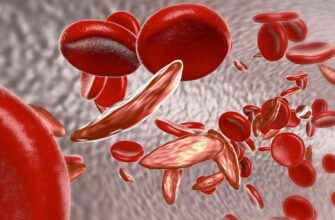Itchy eyes can be a frustrating and uncomfortable experience for many people. It can be caused by a variety of factors and can have several different symptoms. In this article, we will explore the causes, symptoms, and treatments of itchy eyes.
What Are the Symptoms of Itchy Eyes?
The symptoms of itchy eyes can vary depending on the cause of the condition. Some common symptoms include redness, swelling, dryness, burning sensation, and excessive tearing. In some cases, you may also experience blurry vision or sensitivity to light.
What Causes Itchy Eyes?
Itchy eyes can be caused by a variety of factors such as allergies, dry eye syndrome, and eye infections. Other factors that can cause itchy eyes include exposure to smoke, dust, or other environmental irritants, certain medications, and contact lenses.
Allergies and Itchy Eyes
Allergies are one of the most common causes of itchy eyes. Exposure to allergens such as pollen, pet dander, and mold can cause the eyes to become itchy, watery, and swollen. Allergic conjunctivitis is a type of eye allergy that causes these symptoms.
Dry Eye Syndrome and Itchy Eyes
Dry eye syndrome is a condition that occurs when the eyes do not produce enough tears or when the quality of tears is poor. This can cause the eyes to become dry, itchy, and irritated. People who use computers or smartphones for extended periods of time are more prone to developing dry eye syndrome.
Eye Infections and Itchy Eyes
Eye infections such as pink eye or blepharitis can cause the eyes to become itchy, red, and swollen. These infections can be caused by bacteria, viruses, or other microorganisms.
Environmental Factors and Itchy Eyes
Exposure to smoke, dust, or other environmental irritants can also cause itchy eyes. These irritants can cause the eyes to become dry and irritated, leading to itching and discomfort.
Medications and Itchy Eyes
Certain medications such as antihistamines, antidepressants, and blood pressure medications can cause itchy eyes as a side effect. If you are experiencing itchy eyes and are taking medication, it is important to speak with your doctor.
Contact Lenses and Itchy Eyes
Contact lenses can also cause itchy eyes. Wearing contact lenses for extended periods of time can cause the eyes to become dry and irritated. Additionally, if the lenses are not properly cleaned and disinfected, it can lead to eye infections and itching.
How Is Itchy Eyes Diagnosed?
If you are experiencing itchy eyes, it is important to see an eye doctor for a proper diagnosis. The doctor will examine your eyes and may perform tests to determine the cause of your symptoms.
How Is Itchy Eyes Treated?
Treatment for itchy eyes depends on the underlying cause of the condition. If allergies are causing your itchy eyes, your doctor may recommend antihistamines or allergy shots. If you have dry eye syndrome, your doctor may prescribe eye drops or recommend lifestyle changes such as taking breaks from screen time or using a humidifier. In some cases, eye infections may require antibiotics or other medications.
Home Remedies for Itchy Eyes
There are also several home remedies that can help relieve itchy eyes. These include applying a cold compress to the eyes, using over-the-counter eye drops that are specifically designed for itchy eyes, avoiding allergens or environmental irritants, practicing good contact lens hygiene, and taking breaks from screen time. It is important to note that home remedies may not be effective for all cases of itchy eyes and that it is important to seek professional medical advice if symptoms persist.
When to Seek Medical Attention
While itchy eyes are usually not a serious condition, there are certain instances where it is important to seek medical attention. If you experience severe or persistent symptoms, if your vision is affected, if you have discharge or pain in your eyes, or if you have a history of eye problems, it is important to see an eye doctor.
Prevention of Itchy Eyes
There are several measures that you can take to prevent itchy eyes. These include avoiding allergens or environmental irritants, maintaining good contact lens hygiene, taking frequent breaks from screen time, using a humidifier, and practicing good hygiene such as washing your hands regularly.
Conclusion
Itchy eyes can be a bothersome and uncomfortable experience, but there are several treatment options available. It is important to seek professional medical advice if symptoms persist or if you have a history of eye problems. With the right treatment and preventive measures, you can alleviate the symptoms of itchy eyes and maintain good eye health.











